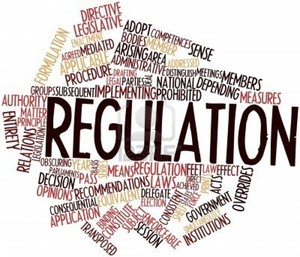In Japan, a biosimilar product is defined as a biotechnological drug product developed by a different company that is comparable to the approved biotechnology-derived product (reference product) of an innovator company [1, 2].
Development and regulation of biosimilars in Japan
Home/Guidelines
|
Posted 16/08/2013
 0
Post your comment
0
Post your comment

Biosimilars may be recombinant proteins and polypeptide products, their derivatives, and products of which they are components, e.g. conjugates. Biosimilars are proteins and polypeptide products produced from recombinant expression systems using micro-organisms or cultured cells and that can be highly purified and well-characterized using an appropriate set of analytical procedures.
A biosimilar product can generally be developed on the basis of data that demonstrates the comparability between the biosimilar product and the reference product with respect to quality, safety and efficacy, or other relevant data.
The reference products should be drugs approved in Japan and be the same product throughout the development period of the biosimilar products.
The following requirements must be met:
- It should be established that the manufacturing process for the biosimilar is highly consistent and robust.
- The biosimilar should be fully characterized using state-of-the-art analytical methods.
- The dosage form and route of administration of the biosimilar product should be the same as that of the reference product.
- Long-term, real-time, real-condition stability studies following the ICH Q5C guideline are required.
- In addition to elucidating the quality attributes of the biosimilar, comparability exercises comparing quality attributes between the biosimilar and the reference product should be conducted.
- Non-clinical studies (including pharmacokinetic, pharmacological and toxicity studies) that can ensure the safety for administration to humans should be performed and completed prior to initiation of clinical studies.
- Where the data from quality characterization and non-clinical studies is insufficient to demonstrate comparability with the reference product clinical studies are required. Clinical studies should be designed based on the data from quality characterization, non-clinical studies and comparability studies [1].
The article that follows compares the clinical requirements of the regulatory authority in Japan with that of the regulatory authorities in Canada, EU and Korea, as well as with the World Health Organization requirements.
Related articles
Comparison of biosimilars guidelines
Japanese guidelines for biosimilars
References
1. Arato T. Recent regulations of biosimilars in Japan. Office of Regulatory Science, Pharmaceuticals and Medical Devices Agency.
2. Derbyshire M. Biosimilar development and regulation in Japan. Generics and Biosimilars Initiative Journal (GaBI Journal). 2013;2(4):207-8. doi:10.5639/gabij.2013.0204.055
Permission granted to reproduce for personal and non-commercial use only. All other reproduction, copy or reprinting of all or part of any ‘Content’ found on this website is strictly prohibited without the prior consent of the publisher. Contact the publisher to obtain permission before redistributing.
Copyright – Unless otherwise stated all contents of this website are © 2013 Pro Pharma Communications International. All Rights Reserved.
Policies & Legislation
EU accepts results from FDA GMP inspections for sites outside the US
WHO to remove animal tests and establish 17 reference standards for biologicals
Most viewed articles
The best selling biotechnology drugs of 2008: the next biosimilars targets
Global biosimilars guideline development – EGA’s perspective
Related content
US guidance to remove biosimilar comparative efficacy studies
New guidance for biologicals in Pakistan and Hong Kong’s independent drug regulatory authority
Canada poised to remove requirement for Phase III trials for biosimilars
European position paper on AI in medicinal product lifecycle
New guidance for biologicals in Pakistan and Hong Kong’s independent drug regulatory authority

Home/Guidelines Posted 20/10/2025
Canada poised to remove requirement for Phase III trials for biosimilars

Home/Guidelines Posted 22/07/2025
The best selling biotechnology drugs of 2008: the next biosimilars targets








Post your comment